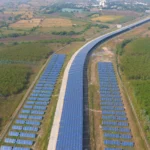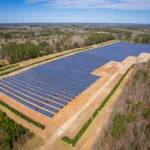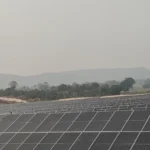The world’s glaciers are disappearing at an unprecedented rate, with 9 trillion tonnes of ice lost since 1975, according to a recent UNESCO report published on March 21, 2025. The rapid glacial retreat is one of the most visible impacts of climate change, driving rising sea levels, water crises, and extreme weather events.
Key Findings from the UN Report
9,000 gigatonnes of ice lost since 1975—equivalent to a Germany-sized ice block measuring 25 meters thick.
450 gigatonnes of ice melted in 2024 alone, marking one of the most severe losses recorded.
Glacier melt is a major contributor to rising sea levels, threatening millions of coastal residents with increased flood risks.
There are approximately 275,000 glaciers worldwide, holding around 70% of the Earth’s freshwater, along with the Antarctic and Greenland ice sheets.
The Role of Climate Change in Glacial Loss
Fossil fuel combustion is the primary driver of rising global temperatures, directly accelerating glacier retreat and triggering economic, environmental, and social crises worldwide.
Glacial melt has raised sea levels by 18mm between 2000 and 2023, exposing up to 300,000 people annually to flooding for every additional millimeter rise.
Mountain communities—home to over 1.1 billion people—are on the front lines of this crisis, facing severe water shortages, avalanches, landslides, and glacial lake outburst floods (GLOFs).
Regional Impacts: Who’s at Risk?
East Africa: Glaciers here are predicted to vanish entirely by 2030, impacting local livelihoods, spiritual beliefs, and freshwater access.
Himalayan Glaciers: Home to some of the largest ice reserves outside the polar regions, their melting threatens water security for over 1.6 billion people in South Asia.
Europe & North America: Glacial retreat is disrupting hydroelectric power generation and freshwater supply, affecting industries, agriculture, and local economies.
What Needs to Be Done?
Urgent Climate Action: Governments and businesses must commit to net-zero emissions to slow glacial melt.
Enhanced Scientific Research & Monitoring: Improved satellite observations, climate models, and early warning systems are crucial.
Sustainable Water Management: Countries must invest in climate-resilient water infrastructure to adapt to changing freshwater availability.
Glacial melt is a climate emergency, impacting ecosystems, human livelihoods, and future generations. Immediate action is needed to curb global warming and preserve these critical freshwater reserves.












